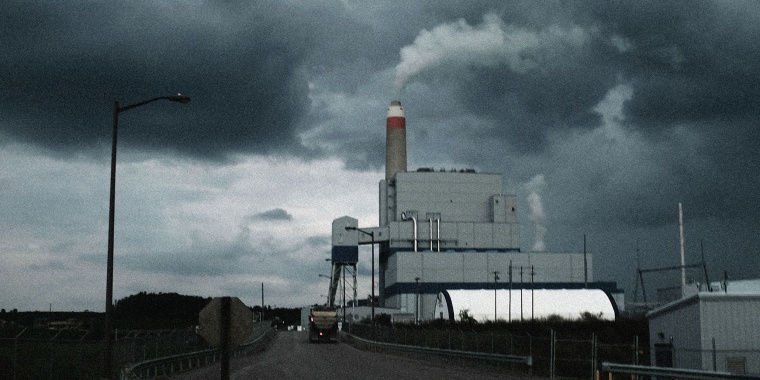If it weren’t for a certain case about reproductive choice, we'd likely consider the biggest Supreme Court case of the term the one that was decided Thursday: West Virginia v. Environmental Protection Agency.
The court ruled 6-3 with fossil fuel companies and conservative states and against the EPA’s power to impose greenhouse gas emissions caps, concluding that Congress failed to give the EPA the power to implement these sweeping environmental controls. This essentially guarantees a significant roadblock to the Biden administration’s plans to fight climate change and shift from coal-burning power to cleaner energy sources.
Ultimately, the case has huge implications not just for the power of the EPA to try to curtail climate change, but also for how and whether federal government agencies can issue rules and regulations in the first place.
The case has huge implications not just for the power of the EPA to try to curtail climate change, but also for how and whether federal government agencies can issue rules and regulations in the first place.
The specific issue in the case is whether, under a portion of the 1970 Clean Air Act, Congress had the constitutional power to allow the EPA to issue “significant rules.” These are rules that are “capable of reshaping the nation’s electricity grids and unilaterally decarbonizing virtually any sector of the economy—without any limits on what the agency can require so long as it considers cost, nonair impacts, and energy requirements.” This particular case involves rules that allow the EPA to regulate greenhouse gases.
The case brings up a major legal issue called, fittingly, “the major questions doctrine.” The doctrine dictates that a federal agency must have clear statutory authority before it decides an issue of major national significance. In plain English, that means before a federal agency makes a huge decision, it better be sure Congress gave it the authority to do so. The specific question here is whether then-President Barack Obama tried to create a rule — the Clean Power Plan — that went beyond the admittedly broad authority Congress granted to the EPA under the Clean Air Act.
Fast-forward from 1970, when Congress passed the Clean Air Act, to 2015. After Congress refused to act to curtail greenhouse gases, the Obama administration adopted the Clean Power Plan, a rule designed to reduce carbon pollution from power plants. Some states immediately challenged the rule, and it did not go into effect. Then-President Donald Trump’s administration repealed the rule, and President Joe Biden’s administration has no plans to reinstate it. In other words, this is a fight about the power of the federal government, but also about a rule that never was, and seemingly never will be, in effect.
Could Congress act to pass new legislation giving the EPA greater or more specific authority in this area? Sure, but it’s tried and failed for years.
This case strikes two heavy blows. The first blow is to the ability of the EPA to help save us from climate change-induced disasters such as flooding, droughts and extreme heat waves. In the words of Justice Elena Kagan in her dissent, "Today, the Court strips the Environmental Protection Agency (EPA) of the power Congress gave it to respond to 'the most pressing environmental challenge of our time.'"
As if that weren’t consequential enough, the second blow is that this decision is about pulling back on the power of all federal agencies, or the so-called administrative state. The court is essentially requiring that federal agencies get specific authority from Congress before acting on major issues, such as climate change.
In the end, the court is pushing the ball back into Congress’ court. In the abstract that may not seem particularly consequential. Congress can act to provide the EPA with more authority. It is worth noting that it is not entirely clear how much specificity the court would actually require and whether Congress could achieve that level of specificity. But Congress almost certainly will not act at all. As we have seen over the past two years, even with a Democrat in the White House, even with Democrats holding a majority in both the House and the Senate, Democrats cannot act on major pieces of legislation without either getting 10 Republican senators to join them (insert laughter here) or finally getting rid of the filibuster.
This is a case that is about how much power federal agencies have to act, but it is also about whether we can avert climate change disasters. Today’s decision is a significant setback for that goal.

